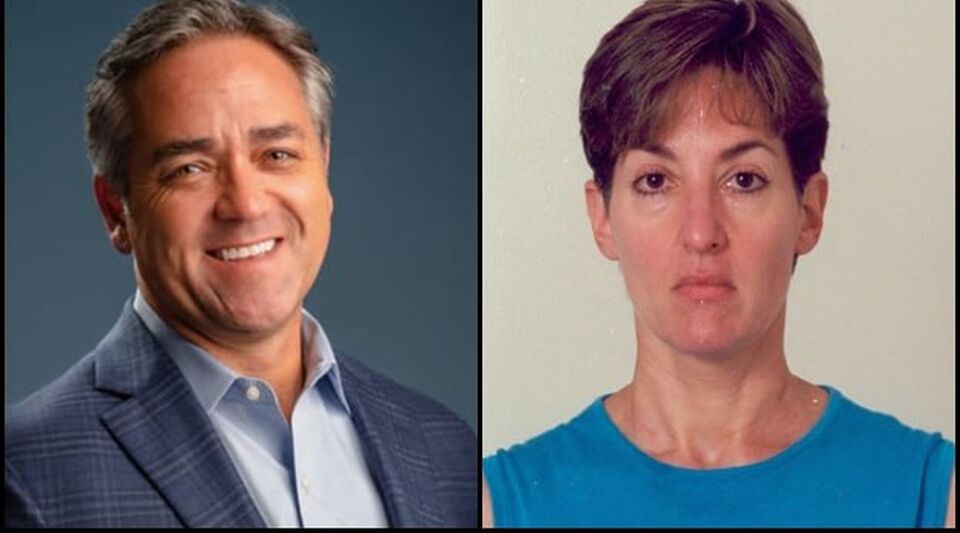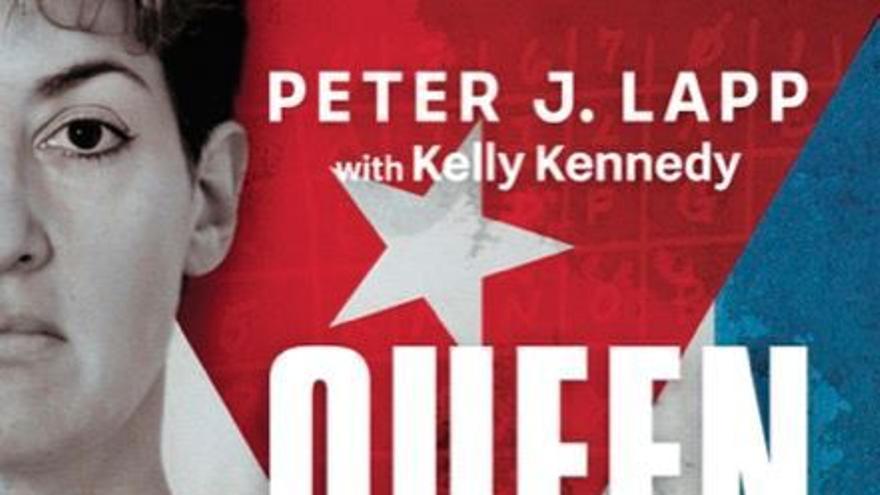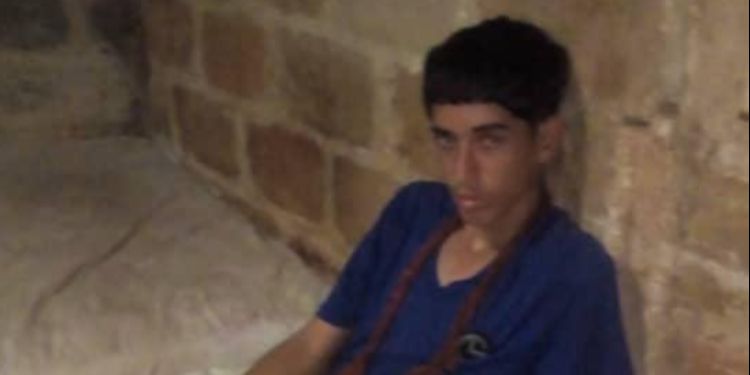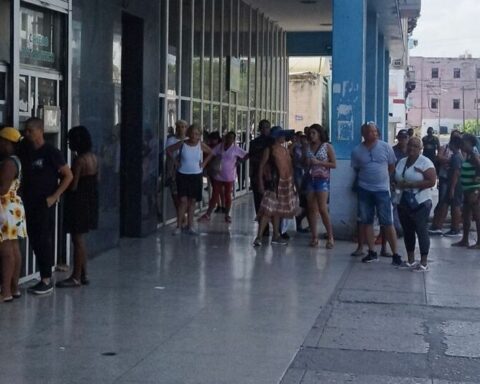Peter Lapp, the FBI agent who arrested Ana Belén Montes, the US spy working for Cuba, last saw her in 2004. When he put the handcuffs on her, she was 44 and he was 31. Twenty years have passed and she She will regain her freedom this Sunday, but Lapp does not forget Montes’ expressionless face, her silence when she was transferred to prison and even the clothes she was wearing on September 21, 2001, a few days after the terrorist attack on the Twin Towers.
“It was the most important moment of my career,” recalls Lapp, who had spent ten months investigating Montes. The woman had been preparing for that moment for 17 years, rehearsing her reaction. “We were unable to extract any incriminating statement from her during her arrest.”
When Montes was arrested, Lapp had just made his debut as a father and – like the rest of the Americans – was still reeling from the 9/11 attacks in New York. The US war against Afghanistan was on the verge of breaking out and Cuban spies worked harder than ever to deliver the White House military plans in the Middle East to Fidel Castro.
Montes, who was serving as a senior analyst for the Defense Intelligence Agency (DIA), almost made it.
Lapp does not dare to imagine how many of his colleagues would have died in Afghanistan and Iraq if they had not prevented the dossier on the war from reaching Havana. “Montes believed that, after attacking Afghanistan, we were going to invade Cuba,” says Lapp. “That wasn’t going to happen, but she thought it was.”
Lapp does not dare to imagine how many of his colleagues would have died in Afghanistan and Iraq if they had not prevented the dossier on the war from reaching Havana
Montes’s arrest was a blow to Castro, who held the spy in high esteem and had even secretly decorated her. “Castro was going to pass that information on to his people in Afghanistan. With the data that Ana was about to send him, he would have found out about the new style of warfare that was about to be launched. Luckily, we acted in time.”
“Castro lost one of his best agents and at the most critical moment,” argues Lapp. Along with the complex international situation, Cuba was in the midst of an economic crisis, still suffering the effects of the Special Period and without Soviet support. However, her secret service was still one of the most efficient in the world.
“You don’t have to think about the number of agents that Cuba has,” Lapp clarifies, “but about the type of people they recruit. Cuban spies are not as many as those that the Russian KGB had, they are much fewer than those of Chinese Intelligence and they don’t compare, of course, with the CIA, but their quality is still significant”.
Lapp explains that the people that Havana is looking for are well educated, like Montes. They work for their affinity with the regime, not for money – as the former agent believes, the Russians and the Germans do – nobody competes with Cuba when it comes to looking for sympathizers. People who, according to Montes snapped at Lapp during their conversations, feel a “visceral empathy” for what Cuba represents.
“It is true that they also ‘buy’ spies or blackmail them, but most of the people who work for Cuba are, shall we say, idealists,” says Lapp. “Cuban recruiters are specialists in locating individuals like Montes, true believers in Castro.”
Before working for the US DIA, already a recruit for Cuban intelligence, Montes flew to Madrid and from there to Czechoslovakia. “She said she was going on vacation,” smiles Lapp. In Prague, her Cuban contact gave her the false passport with which she traveled to Havana to receive instructions.
“She had been characterized by her radical position against the United States during the university, particularly by our policy with El Salvador and Nicaragua,” says the former agent. When she was hired by the DIA, they did not question her ideology. “She had every right in the world to disagree with the government. That tolerance is part of what makes our country great.”
To Lapp’s knowledge, Montes only submitted his application form to the DIA. “They thought she was an extraordinary candidate: she was very intelligent, she was a woman, she was fluent in Spanish, and she was of Hispanic descent. For her time, she was the ideal agent. No one was going to write her off because of her ideology.” .
Since Montes’ arrest, the Cuban secret services have been revamped, but their priority remains the United States. “I cannot estimate how many Cuban spies are here. But I know they are active and have an excellent communication system. They are targeting us.”
“Cuban intelligence has department M-1, entirely dedicated to the United States,” explains the former agent. “Within it is the M-1-1, focused on the White House, the Department of State and Congress, without discriminating between Democrats and Republicans. I can guarantee that the US Government is infiltrated by Cuban spies, either within of the Administration or in contact with its members”.
When one of them is found, there is a chance of dismantling an entire segment of the network, as happened in 2001 with Ana Belén Montes.
When one of them is found, there is a chance of dismantling an entire segment of the network, as happened in 2001 with Ana Belén Montes. “His arrest of her was a great success for us and a failure for Cuban intelligence,” says Lapp.
During the Obama Administration, the possibility of turning Montes over to Havana in exchange for the return of Joanne Chesimard, who fatally shot a police officer in New Jersey in 1973, was raised. Chesimard, who had been a member of the Black Panthers , managed to escape from his prison and flee to Cuba, where he lives to this day as an asylum seeker under the name of Assata Shakur.
“However,” recalls Lapp, “the Cubans did not want to and I do not believe that the US intelligence agencies would have supported a negotiation like that.”
Things have changed. Montes is, for now, a free woman, although she remains under US judicial supervision. She does not have a passport. She is subject to relatively strict rules. “But that doesn’t mean she can’t get a fake passport and end up in Cuba. I don’t think that will happen. I think she will stay in the US and spend some time with her mother, who has suffered tremendously from her betrayal.” , supposes Lapp.
Montes’ brother and sister are both retired FBI agents. The whole family was very shocked. “That’s why I know we won’t see her in Cuba, at least until her mother, who lives in the US, dies.”
Twenty years after that arrest, it is impossible to know what Ana Belén Montes thinks today, if her perspective on Cuba has changed, if she would be willing – with Fidel Castro dead and her brother Raúl out of the political arena – to resume at all costs her support for the regime.
“When we met during the interrogations, she knew better than anyone, from her work, the human rights violations on the island. Her attitude, despite acknowledging the failures of the Cuban government, was to affirm that it was up to the Cuban people to rebel and change his regime. A view that, frankly, is cynical.”
“I haven’t seen her since 2004,” recalls the former agent. “I went to Texas to see her. It wasn’t a good experience for either of us. I tried to be professional, but it was hard to keep cool with her. I couldn’t stop thinking about what she would have unleashed in Afghanistan. A woman like that, well educated, intelligent, she would have saved many lives. I don’t know if I could speak to her again. I don’t know, if I decide to look for her, if she will receive me well.”
Peter Lapp plans to publish this year your view on the case by Ana Belen Montes. in his book –Queen of Cuba– It will offer details about the capture of the spy, the network in which she moved and the Cuban agent who recruited her. The text is still under review by the FBI, due to the amount of confidential information with which Lapp worked to tell her story.
“It’s going to be a tough life ahead of Montes,” Lapp says. “The media have her in their sights. No wonder. Ana is a rare and unique woman, inspired by Castro, and she will come out of jail to live among us again.”
________________________
Collaborate with our work:
The team of 14ymedio He is committed to doing serious journalism that reflects the reality of deep Cuba. Thank you for accompanying us on this long road. We invite you to continue supporting us, but this time becoming a member of our newspaper. Together we can continue transforming journalism in Cuba.









